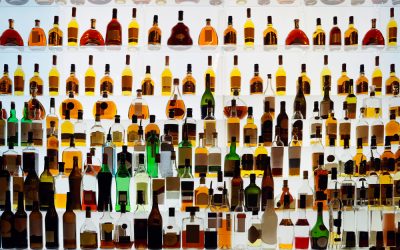Over time, high blood sugar levels damage the small blood vessels in the kidneys, leading to CKD. These bean-shaped organs are the body’s natural filtration system, working 24/7 to eliminate toxins, balance electrolytes, and regulate blood pressure. Yet alcohol, especially when consumed heavily or frequently, can silently sabotage these vital functions. Both of these factors affect hormones that regulate kidney function, just as changes in fluid volume and electrolyte balance do.
Does Beer Clean the Kidneys or Harm Them? Understanding the Truth About Beer and Kidney Health
In fact, hyperphosphatemia often precedes hypophosphatemia. Alcohol consumption apparently leads to excessive phosphate levels by altering muscle cell integrity and causing the muscle cells to release phosphate. This transfer of phosphate out of muscle cells and into the bloodstream results in an increased amount of phosphate passing through the kidneys’ filtering system. In response, reabsorption of phosphate diminishes and excretion in urine increases in an effort to return blood levels of this ion to normal. “Beer drinkers’ hyponatremia” is a syndrome that appears to result from an intake of excessive fluid in the form of beer. Hilden and Svendsen (1975) observed hyponatremia in five patients who drank at least 5 liters of beer per day (L/d) without any other nourishment.
In addition, Iwatsuki and colleagues (1973) and Gonwa and Wilkinson (1996) documented the return of normal kidney function in hepatorenal syndrome patients who receive liver transplants. Among the most important substances contributing to these conditions are water, sodium, potassium, calcium, and phosphate. Loss or retention of any one of these substances can influence the body’s handling of the others.

Free by the Sea Can Help You Overcome Alcohol Addiction

Always check with your healthcare provider if you have concerns about your alcohol consumption. People often think that drinking water while consuming alcohol prevents kidney damage. Although staying hydrated is essential, it does not completely counteract the effects of alcohol on the kidneys. The kidneys still face stress from alcohol regardless of hydration levels.
Kidney disease from alcohol use leads to the following issues.
Moreover, it helps people recognize the common signs of alcohol-induced kidney damage and learn when to seek https://mundodeprojetos.com.br/sober-living/how-excessive-drinking-leads-to-neuropathy/ professional help. Alcohol has become a part of many cultures across the world. Its presence is mandatory in almost every social event, whether a happy or a sad one.
- An estimated 41.9% of adults in the United States have obesity.
- Another potential cause of hypophosphatemia in alcoholic patients is hyperventilation, which can occur during alcohol withdrawal.
- Beer reduced potassium levels while bourbon whiskey increased them.
- However, the truth is that excessive alcohol consumption can wreak havoc on these vital organs, leading to various complications.
Acute kidney injury (AKI) is a sudden decline in kidney function, often triggered by extreme events like binge drinking. While AKI may be temporary, it can be life-threatening and may lead to long-term kidney damage. Even short-term alcohol abuse can cause a significant shock to the kidneys, putting them at risk for lasting harm.

The difficulties in successfully managing dilutional hyponatremia have resulted in the recent emergence of a promising class of new drugs to treat this abnormality. Specifically, drugs known as arginine vasopressin antagonists are being developed to inhibit ADH at the cell receptor level. These new drugs should dramatically facilitate treatment of Alcoholics Anonymous cirrhotic patients with impaired fluid handling. When you’re concerned about your kidney health, Milwaukee Nephrologists is your go-to resource. To learn more, check out our other educational articles, or get in touch with our staff of nephrologists, transplant specialists, and dietitians to schedule an appointment. Damage to one organ has reverberating effects that impact many other organs.
These symptoms are the same as what a person living with untreated chronic kidney disease might experience. Kidneys can usually recover from short-term alcohol damage. Just because your kidneys have recovered from immediate effects of alcohol damage doesn’t mean that the impact does alcohol affect your kidneys on your kidneys is over. If you experience kidney pain after drinking, see a doctor right away. Early diagnosis and treatment can help prevent serious complications.
Understanding these elements empowers you to make informed choices concerning your kidney health and beer consumption. If you notice any of these symptoms, it’s important to seek medical advice as soon as possible. Kidney disease can be diagnosed through medical testing, and early intervention can help prevent further damage.
When you’re dehydrated, your urine becomes more concentrated, and you’re more likely to experience kidney stones or UTIs that can damage the kidneys. If you want to give your kidneys a boost by cutting back on your alcohol consumption, consider trying Reframe. We’re a neuroscience-backed app that has helped millions of people reduce their alcohol consumption and form healthier lifestyle habits. Alcohol can also interfere with the effectiveness of medications used to manage kidney disease and its complications. For example, alcohol can reduce the effectiveness of blood pressure medications, making it more difficult to control high blood pressure, a leading cause of CKD. Alcohol consumption leads to dehydration, as it inhibits the hormone vasopressin, which helps the kidneys retain water.
Furthermore, alcohol can cause dehydration, which can further impair kidney function and lead to acute kidney injury. The National Kidney Foundation provides clear guidelines on alcohol consumption to safeguard kidney function. Consuming more than three drinks in a day for women, and more than four drinks in a day for men, is considered “heavy” drinking. This level of consumption can double the risk for kidney disease. A topic of considerable concern and frequent inquiry is ‘does alcohol affect the kidneys? Indeed, both acute and chronic alcohol consumption can have significant effects on kidney function, leading to changes in kidney structure and function.
Small amounts of unwanted substances also are secreted directly into the nephron tubules. Together, the filtered and secreted substances form urine (see figure) and eventually trickle into a series of progressively larger collecting ducts. Each 4.5-inch-long kidney contains about 250 of the largest collecting ducts, each duct transmitting urine from approximately 4,000 nephrons.
